다카하시 신지_마음의 발견21
2023/05/27
다카하시 신지_마음의 발견' 제 6장 인생론 노트-조화에의 길
다카하시 신지_마음의 발견21
다카하시 신지 1996 인간석가(상/하) 목차
인간석가(상)
정가 13,000원
판매가 품절
저자/출판사 다카하시 신지/김해석/미리내
페이지수 387
발행일 1996-05-24
관련상품
인간석가(하)
품절
책소개
지금까지 국내에서 출간된 붓다의 생애에 관한 대부분의 책들은 붓다의 행적과 가르침을 쓴 내용들이며 출가 이후 가장 중요한 부처님의 해탈, 즉 깨달음에 이르는 과정에 관해서 쓴 부분은 거의 없습니다. 그것은 당연한 일입니다. 불경은 붓다가 직접 쓴 것이 아니라 제자들의 손에 의해 씌어졌고, 2천5백년 동안 불교학자들의 지식과 의지가 가미되었기 때문입니다. 그래서 같은 사건이지만 제자들마다 내용과 표현이 다르고, 이름이나 지명, 설법 내용이 다르게 해석된 경우도 있습니다. 또한 붓다의 가르침을 엮은 책들은 쉽게 이해할 수 없는 책들이 많습니다. 글을 읽는것이 아니라 해석을 해야 하는 난해한 경전들은 붓다의 가르침을 받고 싶어하는 사람들에게 빗장을 걸어놓고 담을 넘어오기를 기다리고 있는듯 합니다.
<인간석가>는 지금까지의 붓다에 관한 책과는 아주 다릅니다.『우리가 이 세상에 살게 된 7가지 이유』의 저자인 다카하시 신지가 영적 계시에 의해 부처님이 불러주신대로 직접 받아쓴 책이기 때문입니다. 따라서 이 책은 붓다의 탄생과 행적을 중심으로 한 다른 석가전과는 달리 깨달음을 얻기 위해 고뇌하는 고타마 싯다르타의 내면과 심리상태가 섬세하고 치밀하게 서술되어 있고, 붓다와 제자들의 수행생활과 당시의 인도 사회의 풍습과 제도, 생활이 선명하게 그려져 있습니다.
붓다의 설법 또한 뛰어납니다 .붓다가 제자들과 각지를 다니며 병든자를 치료하고, 고뇌에 빠진 자에게 깨달음을 주고, 각지를 다니며 각계각층의 사람들에게 설법한 내용과 열반에 들기 전 최후의 설법은 살아있는 붓다를 확실하게 느끼게 해줍니다.
이 책은 출간된 후 전문적인 불교 학자들에 의해 지금까지 연구 결과로 나온 붓다의 생애에 관한 고증과 다른점이 없다는 사실이 밝혀졌습니다. 뿐만 아니라 지금까지 의문에 싸였던 불경의 뜻이 더욱 분명해졌으며 붓다를 더욱 잘 이해할 수 있게 되었다는 것입니다.
저자소개
다카하시 신지
일본 사꾸고원 아사마에서 태어나 일본대 전기과를 졸업했으며 공군 전투비행단 팡리럿 출신으로 제대 후에는 컴퓨터 회사를 경영했다. 30여 년간 신과 영혼문제를 탐구했다. 정진하는 과정에서 득도와 더불어 마음의 눈이 열린 20세기의 신화적인 존재로 알려져 있다.
목차
제1장 출가에서 성도에 이르기까지
1. 탄생에서 출가까지
2. 마음의 스승을 찾아서
3. 다섯 사람의 크샤트리아와의 만남
4. 숫도다나와 가족의 슬픔
5. 한 여인의 보시
6. 의문과 해답에의 편력
7. 암중모색
8. 대각의 실마리
9. 한 모금의 우유
10. 마음의 격투
11. 광명에의 길
12. 마음의 구름을 벗기다
13. 출가와 반성
14. 몽환의 세계
15. 마라와의 대결
16. 위대한 깨달음
17. 범천과의 대화
18. 범천계에서의 자각
19. 정법 유포의 길
제2장 다섯 사람의 아라한
1. 관자재력
2. 우루벨라에서 미가다야로
3. 이시 나바다에서의 불가사의
4. 최초의 제자
5. 광명에의 개안
6. 마음의 때를 벗기고 아라한이 되다
제3장 연생의 제자들
1. 야사의 고민
2. 전도의 길
3. 병을 고치다
4. 불을 예배하다
5. 우루벨라 캇사파의 귀의
6. 삼보의 의의
7. 캇사파 형제의 귀의
8. 불, 법, 승의 조건
9. 남입자
10. 사랑의 삽자가
11. 죽림정사의 기증
12. 전도의 거점
13. 귀성의 권유
14. 기연
15. 귀의
16. 우란분재와 공양
17. 우파데사의 개명
===
불교는 계시의 종교가 아니다 ■붓다 - 다카하시 신지 지음
가르침과 배움의 글들, 갯밭무시의 블로그 : 다카하시 신지
다카하시 신지 선생님 - GLA(지·엘·에이) GLA(지·엘·에이)
다카하시 신지 선생님
상단
GLA 소개
인간의 본질이 영혼임을 증명한 타카하시 신지 선생님은, 우리가 인치를 넘은 큰 존재, 신불에 의해 살려 자기의 확립과 세계의 조화를 위해 태어났다는 것을 호소했습니다.
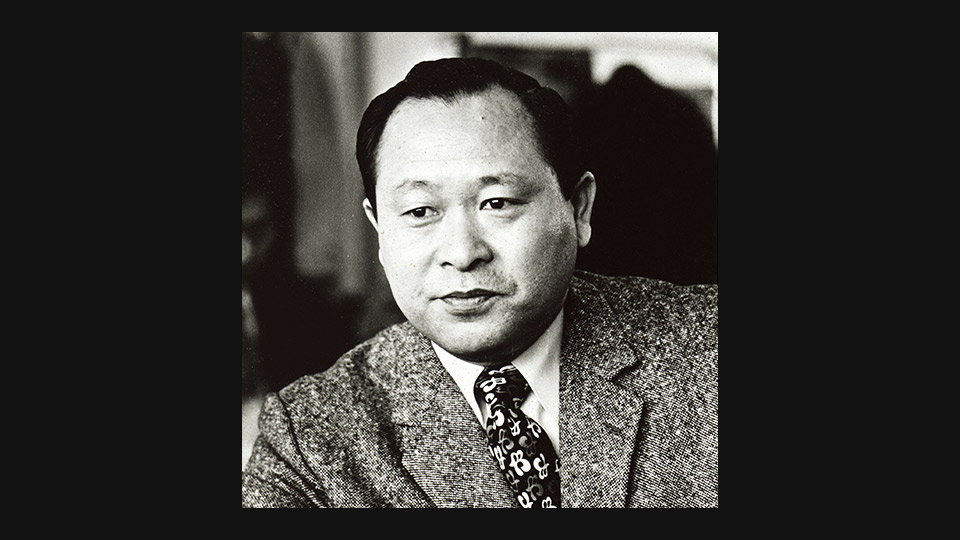
1927년, 나가노현에 태어난 타카하시 노부지 선생님은, 어린 시절부터 「육체의 자신」을 빠져 나온 「다른 한명의 자신」의 체험을 거듭하게 되어, 이 「다른 한명의 자신」이라고 는 누구인가 하는 의문을 추구해 떠났습니다.
그리고 전자공학, 물리, 천문, 의학 등을 배우고, 실재계(그 세상)와의 접촉을 체험하면서, 인간의 마음과 육체의 관계를 풀어내는 것과 동시에, 인간은 영혼으로서 영원한 생명을 안고 환생 윤회 하고 있다는 진리(신리)에 깨어난 것입니다.
이후 컴퓨터 기기 제작 회사를 경영하는 분들 '마음의 원점' '마음의 발견'(전 3권), '인간·석가'(전 4권) 등 다수의 저서와 강연 활동을 통해 '인간 육체만의 존재는 아니고, 그 본질은 영혼이며, 인공을 넘은 큰 존재, 신불에 의해 살려지고 있다. "왔다"는 것을 설명했다.
그리고, GLA나 경영자의 단체에서의 지도를 계속해, 7년 후의 1976년 6월 25일, 예전부터 스스로 예언되고 있던 대로, 실재계에 귀천되었습니다.
타카하시 신지 선생님의 저작
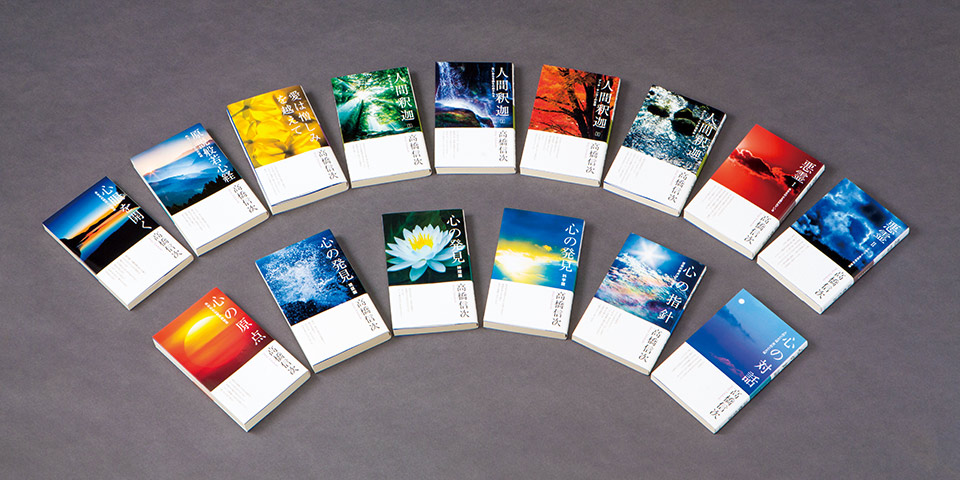
타카하시 신지 선생님은, 「마음의 원점」 「마음의 발견」(전 3권), 「인간 석가」(전 4권)를 비롯한 「마음과 인간 시리즈」전 16권을 저술했습니다.
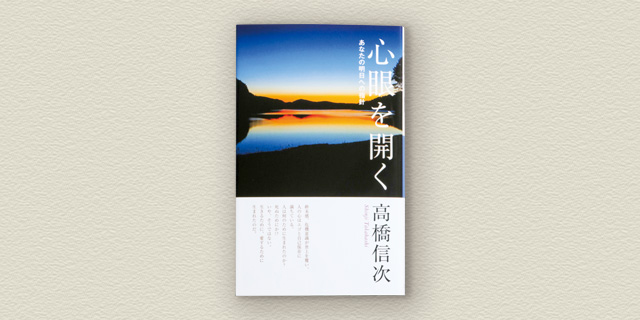
심안을 열다
서두에는 다카하시 요시코 선생님이 새로 쓰여진 「신장판 발간에 전해」라는 일문이 게재되어, 신지 선생님의 소원, 만년의 추억, 그리고 맡겨진 배턴 등에 대해 접하고 있습니다.
상세 페이지
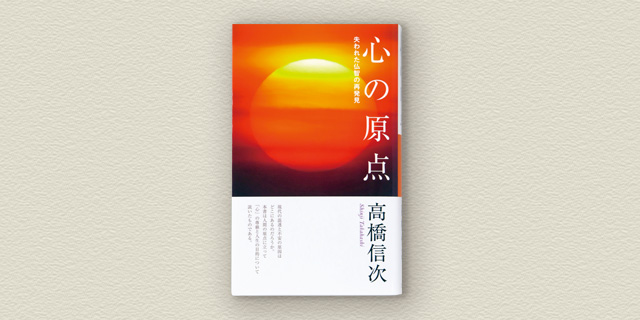
마음의 원점 - 잃어버린 불지의 재발견
대자연의 행위는 무엇을 말하고 있습니까? 불교, 기독교의 원점으로 돌아와 사람과 자연의 조화 속에 사람의 살아야 할 참된 길이 있다고 설교합니다. 인생의 사명과 목적을 알기 쉽게 보여준 각 계격상 롱셀러입니다.
상세 페이지
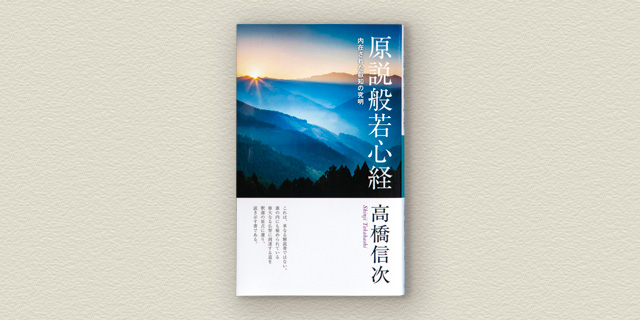
원설 일반 젊음
경은 결코 어렵지 않습니다. 글자를 읽을 수 없는 사람들이 많았던 시대에 비유를 짜넣어 사람의 살아야 할 길을 설한 것이기 때문입니다. 철학화되어 난해한 것이 되어 버린 경문에 지금, 다시, 생명의 숨결을 주고, 그 진수를 설명하고 있습니다.
상세 페이지
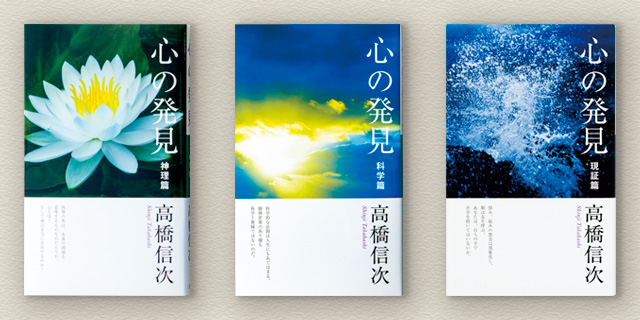
尹篇発見 (신리 편, 과학 편, 현 증)
진실한 것은 합리적이고 역사적으로도 증명되고 현실에 나타나도 잡을 수 있는 것이어야 합니다. 이 책은 그 관점에서 마음의 존재와 사람이 살아야 할 길을 누구에게나 알기 쉽게 쓰여진 것입니다.
상세 페이지
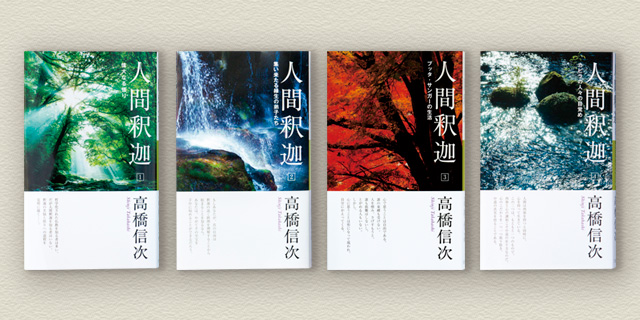
인간·석가(제1권~제4권)
석가의 고뇌와 출가, 깨달음에 대한 마음의 편력, 그리고 깨달음(우주 즉아). 신지 선생님은, 아무런 자료나 참고서도 없고, 붓이 진행된 채로 석가를 썼습니다만, 인간·석가를 말해 더 이상의 책은 아직까지 없습니다. 독자는 인간으로서의 석가의 마음을 접함과 동시에 신리의 세계로 이끌어갑니다.
상세 페이지
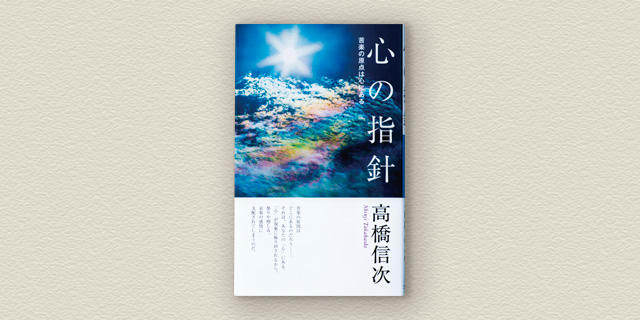
마음의 지침
잘못된 신앙과 그 폐해의 실례, 팔정도의 알기 쉬운 해설, 인간의 정신구조와 그 기능, 기도의 의의와 기원문, 독자의 질문에 답한 문답집 등을 내용으로 하고, 초보자도 알기 쉽게 신 이론의 개요를 설명합니다.
상세 페이지
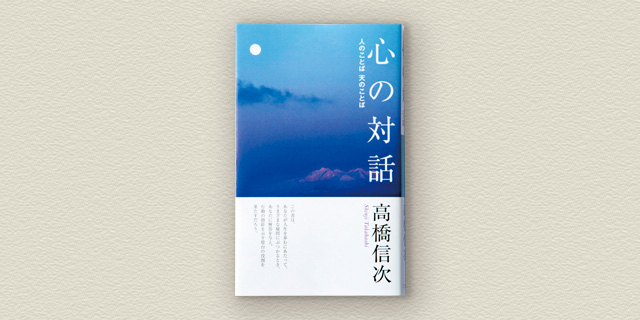
마음의 대화
인생을 걸을 때 다양한 의문에 부딪힐 때 명확한 해답을 주고 행동 지침을 나타내는 등대의 역할을 하는 것입니다. 인생에 사는 의욕을 주는 주옥의 문답집입니다.
상세 페이지
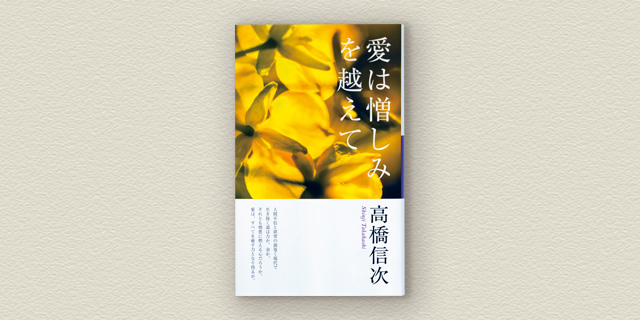
사랑은 증오를 넘어
어린 시절부터 받은 엄격한 차별이나 편견 속에서 인간 불신으로 마음이 거칠어지고, 욕망의 소용돌이로 말려들어가는 1명의 수전 놈. 모습을 바라보고 인생의 의의, 사랑에 접하는 장면은 읽는 자에게 감동을 주지 않고는 두지 않습니다.
상세 페이지
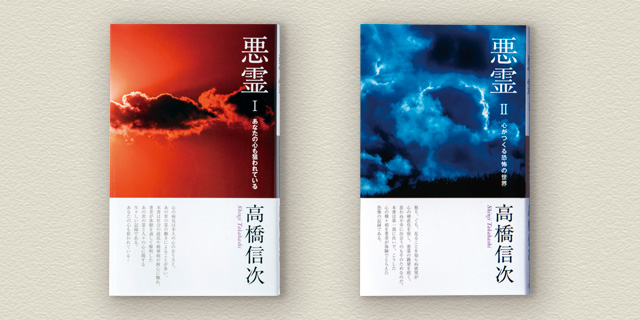
악령(1권, 2권)
뉴 로제, 정신병 및 그 원인 중 하나에 잘못된 믿음이 있습니다. 인간의 마음을 모르는 장님의 신앙이 얼마나 무서운 결과를 초래해 버리는 것인가, 수많은 사례를 들어가면서 설해 갑니다.
상세 페이지
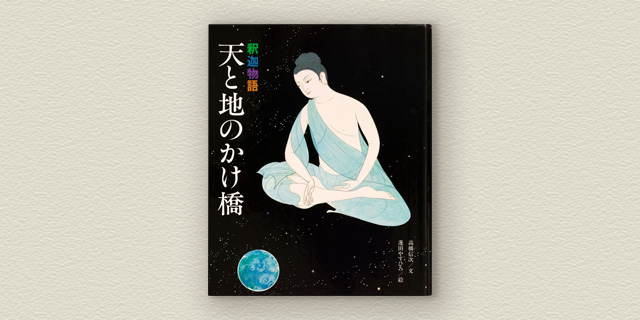
그림책 / 하늘과 땅의 가교
석가의 출성에서 깨달음에 이르는 과정을 아름다운 일러스트와 함께 그린 초등학교 고학년부터 어른용 그림책입니다. 1981년 볼로냐 국제 아동 도서 전출품작.
상세 페이지
Shinji Takahashi (religious leader) Wikipedia
Shinji Takahashi (religious leader)
This article needs additional citations for verification. Please help improve this article by adding citations to reliable sources. Unsourced material may be challenged and removed. Find sources: "Shinji Takahashi" religious leader – news · newspapers · books · scholar · JSTOR (December 2010) (Learn how and when to remove this template message) |
Shinji Takahashi | |
|---|---|
| Personal | |
| Born | Haruo Takahashi (高橋春雄, Haruo Takahashi) September 21, 1927 |
| Died | June 25, 1976 (aged 48) |
| Religion | Buddhism, Theosophy (Blavatskian) |
| Nationality | Japanese |
| School | graduated or retired from College of Science and Technology, Nihon University |
| Senior posting | |
| Successor | Keiko Takahashi (高橋佳子, Takahashi Keiko) |
| Reincarnation | Jacob, Enlil, Sanat Kumara, Zuo Ci, En no Gyōja |
Shinji Takahashi (高橋 信次, Takahashi Shinji, September 21, 1927 - June 25, 1976) was a religious leader who was born in Japan, corporate manager and hardware engineer. Takahashi founded the new religious corporation God Light Association [ja] (GLA). He was born in Saku city, Nagano prefecture, Japan. He founded Koden Industry Co., Ltd. and served as its first president.
Biography[edit]
Secular career[edit]
Takahashi was born on September 21, 1927, in Saku, Nagano, Japan, into a farming family. He was the second eldest son among 10 children. At age 13, Takahashi entered the Army Cadet School after dropping out in his second year of a middle school that was run under the old system of education. He then completed his studies and graduated from the Army War College, after which he was assigned to be an aerial navigator. At the end of World War II in 1945, Takahashi returned to his hometown. On moving to Tokyo, he passed a high school equivalency exam and studied mainly in the College of Science and Technology at Nihon University. Although Takahashi was said to have studied at the University of Tokyo Graduate School for a while, he was not able to obtain a graduate degree since his dissertation, which was necessary for receiving a graduate degree, was considered below standard and was laughed at by the professors.[citation needed] During his studies, he started two unsuccessful companies before he opened his third company, Koden Industry Co., Ltd.[1], a company that develops hardware for electronics. While managing this company, Takahashi possessed 460 patents. He also served as the president of Yaoki Building Management Co., Ltd.
Religious life[edit]
When Takahashi was approximately 10 years old, he started experiencing a spiritual phenomenon now known as an "out-of-body experience"[note 1] and came to refer to his astral body, as his "other self". As a child, he had doubts about this phenomenon and continued to pursue studies in electrical engineering and physics for the next 32 years. Takahashi did not have any interest in religion, and considered himself a non-expert in that field.
Around 1968, he claimed to have begun receiving communication from spirits that identified themselves as "Fwan Sin Fwai Sinfo" and "One Two Three". Soon after, Takahashi claimed to have arrived at a spiritual state where he had thrown away attachment and achieved a peace of mind; afterwards, he said that these spirits were the guardian and guiding spirits, respectively, that would come up in the GLA doctrine.[citation needed]
"Fwan Sin Fwai Sinfo" designated itself as Takahashi's "guardian spirit" and later informed Takahashi that it was Jesus Christ himself. The spirit "One Two Three", as Takahashi's "guiding spirit", later told Takahashi that it was Moses.
Afterwards, Takahashi, who claimed to have attained Buddhahood under their guidance, embarked as a religious leader and starting writing about his experiences in the form of literary works.
In addition, through his own lectures, Takahashi left behind many supposed miracles.[citation needed] He also claimed to have seen "spirits", which do not have physical bodies, and to have spoken to them, exorcising disharmonious spirits that possessed people. He claimed to preach shinri (divine principle) and hou (law) to these spirits and make them repent their faults.[2]
In particular, he cautioned against becoming excessively enveloped in phenomena out of mere curiosity. This is considered to be gensho ("actual proof") that arose during the eras of Moses, Jesus Christ and Siddhartha Gautama. Takahashi preached the practice of "harmonization", "charity", and "love". In order to practice these, Takahashi stated that people must possess their own standards through the hasshoudo (or the Eightfold Path – eight deeds that must be performed to reach nirvana) that Buddha preached, correct distortions in their hearts that had been created through "self-reflection", and practice a middle-of-the-road life.[note 2] Takahashi assumed that it would be possible for one's heart to become peacefully harmonized, escape from the torment of the present, and open up new possibilities. Then, compassion and love would grow in one's heart, enabling actions of compassion and love, which are at the core of bodhisattva ("enlightened existence" in Sanskrit). Takahashi preached that the ethos of Buddhism, Judaism, Christianity, and Islam are all rooted in the same law of nature or cosmic laws.
He slept for only 3 to 4 hours a day due to his schedule of managing companies, managing a religious organization, giving personal guidance to believers, and writing literary works. On June 25, 1976 at 11:28 A.M., Takahashi died at the age of 48,[citation needed] as he himself had prophesied, due to deterioration of his liver and kidneys.[3][note 3]
God Light Association[edit]
Word of mouth had spread about Takahashi since he claimed to have experienced spiritual encounters with Jesus Christ and Moses and attained Buddhahood; people came to learn under Takahashi's instruction.
He first started to preach at his home, but by April 1969, the number had grown to about 100. Takahashi began to preach at the Yaoki Building, a building that he owned near Asakusa Station on the Toei Asakusa Line. Construction had just begun, as Takahashi had originally planned to establish a business consisting of ultrasonic hot springs and saunas there. Takahashi named this organization Shinkoukai ("Society for Incarnating the Light of God").
In August 1971, after a follower of the Zuihoukai,[note 4] listened to Takahashi's teachings at a workshop at Mt. Izuru in Tochigi prefecture, the entire Zuihoukai religious association merged with, and converted to, the teachings of the Shinkoukai. Since the Zuihoukai was an organization that had obtained corporate status as a religious corporation, the Shinkoukai became known as the "Shinkoukai Religious Corporation".[note 5] After the merger, Shinkoukai was renamed with an English name, the "God Light Association" (GLA), taking the internationalization of this organization into consideration. The organization became known as the GLA Religious Corporation, and the Zuihoukai became the GLA Religious Corporation Kansai Headquarters.
It was rare for an existing religious association such as the Zuihoukai to embrace an emerging organization. After the merger of the two religious organizations, the number of followers in the GLA rose to tens of thousands of people, and although the creation of a full-scale organizational structure was desired, the creation of a clear structure was shunned due to Takahashi's dislike for forming such structures.
After Takahashi died he was succeeded by his eldest daughter Keiko, although there was a contingent of followers who withdrew from the GLA due to changes in the teachings. In addition, as a result of changes in the doctrine, the GLA splintered after a few years, and disciples that had directly studied under Takahashi established new religious organizations. Today the Tokyo and Osaka branches exist as separate organizations.
In honor of Takahashi's death, groups and individuals gather voluntarily and carry out activities to try to learn the teachings of Takahashi, including Ryuho Okawa of the religious association Happy Science. Okawa published many books in the Takahashi Shinji Reigenshu (Collection of Shinji Takahashi’s Sayings) series before he halted the printing of that collection in 1994 due to legal threats from Keiko.
Practical activities as a religious leader[edit]
Takahashi referred to the law that he preached, and practiced, as shoubou (proper Buddhist law). It has been said[who?] that when he held lectures in the provincial regions, he would spend several hours afterwards "self-reflecting", based on the hasshoudo, as to whether there was any wrongness in his role and whether there were any inaccuracies in the "law" that he preached. It has also been said[who?] that Takahashi possessed all of the capabilities of the six spiritual powers (tengantsu, tenjitsu, tashintsu, shukumeitsu, jinsokutsu, and rojintsu.)[note 6]
Takahashi took in people such as elderly people who were homeless, a woman who had intellectual disabilities and no relatives, and people who had difficulty living independently in society, such as gangsters. He supported these people with the profits that he made as a company owner.[citation needed]
Takahashi criticized blind faith and fanatical belief in religion and consciousness, and paraphrasing Karl Marx, he also believed that religion based on blind faith is like opium. In his teachings he insisted that one should always doubt, and should believe only what cannot be doubted any further.
Takahashi believed that religion should not be turned into the sustenance of life, so he lived off of the profits that he earned as the corporate manager of Koden Industry Co., Ltd., without taking any profits from his religious activities. Takahashi allotted the profits he made as a corporate manager to fund missionary activities and regular administrative expenses for his religious organization.[citation needed]
================================================
Principles that Takahashi preached[edit]
Takahashi advocated shinri (laws of nature prescribed by God, also called hou), which does not change even if the times change. Specifically, he stressed going back to the teachings of Buddha and Jesus Christ, and based on his own experiences, Takahashi preached the existence of souls and the great beyond. He stated that after death, the soul of each person goes off to a world that corresponds to that person's character (reflected through the amount of the soul's light; a greater amount of light represents a higher degree of harmony with God). Takahashi also advocated the practice of the hasshoudo (Noble Eightfold Path) that Buddha preached, as a method for harmonization on earth and for growth of each person's soul. He preached self-reflection as a means to do away with the cloudiness in one's soul (said to be created by humans' disharmonic ideas and actions) and to receive God's light, which the soul is said to originally receive. Takahashi then emphasized the practice of ideas and actions after self-reflection.
The essence of the universe[edit]
According to Takahashi, the universe that we live in is the source of banshou (all beings) and banbutsu (all things), and follows various principles, starting with the principle of samsara (cycle). The macrocosm is controlled by one large "cosmic consciousness"[4] that harmonizes the universe. This consciousness itself is a God (the "Great God of the Macrocosm") and this universe is the body of God. The solar system in this world is merely one of the small organs of the body of the macrocosm, and earth is a small cell. As the Earth is a cell in the body of the universe, it possesses a consciousness. In such a way, banbutsu represents all things, and is a mass of energy. Since the macrocosm is a divine body, the Earth, as a cell in this macrocosm, is also a divine body, or a temple. All things, starting with human beings, continue repeating the process of samsara in order to make this Earth into a harmonious "Buddha land", or utopia, that follows divine will.[5] Takahashi referred to the attainment of enlightenment based on becoming one with the macrocosm at the apogee of the rise in the degree of harmony of the soul with God as uchu sokuware (the mindset where one can understand all truths in an instant upon expanding their other self to the scale of the universe, through self-reflective meditation).[6]
Past life, present life, and afterlife[edit]
Takahashi referred to the material world that we live in as the "phenomenal world" and the non-material world where the soul returns after death as the "actual world". He believed in evolution through the course of samsara. Growth was indicative of a rise in harmony with the gods, becoming closer to the existence of compassion and love. Based on this degree of harmony with the gods, stages of consciousness would arise in the soul of each human being. Those that are particularly harmonious are considered as the world above (fourth dimension to the ninth dimension; a larger number indicates a higher degree of harmony), whereas the most disharmonious are considered to be in hell. Thus, the living circumstances in the real world after death change depending on the degree of harmony one had achieved. Through this cycle, human beings become closer to the existence of compassion and love.
With regard to samsara, Takahashi compared the physical body to being just a boat for traveling through life, and life to a route for the soul, which is the essence of human beings. The physical body is only given by the gods and by one's parents as a virtual boat for traveling through life.
With the 3rd dimension as the origin, each dimension is referred to by name, such as the “astral world” of the fourth dimension and the “spiritual world” of the fifth dimension, but according to Takahashi, the numbers are merely appellations; in reality, these stages are considered as existing inexorably, confirmed when the third eye is open.
Plan of the world above[edit]
According to Takahashi, gods are light, they are the energy that fills the macrocosm, they are the dharma, they are unlimited will, and they are all compassion and love.[citation needed] In the world above, gods are also considered to be symbolized as a spiritual second sun. In relation to this, buddhas in Buddhism, and the Messiah in Judaism, Christianity, and Islam is a person that has realized "uchu soku ware”, the concept of Brahman and the self as one. Human beings are all equally the children of God, and can reach the stage of buddha by making their soul grow through numerous transmigrations. As of 1971, there were 423 people on earth (425 following death) who had become a Buddha.[citation needed] In addition, there are also bodhisattvas who are of the previous stage. The stage preceding that consists of shoten-zenjin. According to Takahashi, the specific method for attaining Buddhahood is to actually incorporate the “hasshoudou” that was preached by Gotama Buddha, the founder of Buddhism, as well as self-reflection based on this hasshoudou into daily life (a method that Takahashi called “gyou soku hikari”). By practicing this, human beings can increase their degree of harmony with gods and Buddha, and as a result, attain “uchu sokuware”.
What Takahashi said regarding this point was that based on this, as humans are all originally children of God, "everybody is a brother",[citation needed] and warring is a result of complete ignorance and misunderstanding. In addition, at one point, all people are promoting the growth of their soul while repeating samsara, so their object is actually harmony on earth. The orientation of such a framework is determined in the world above, and based on this, people are only born after designing, in Takahashi's "actual world", what will be their life and mission on earth.
However, the mission of each person is not specific, it is only to train the soul while living like a human being. “Training the soul” refers only to harmonizing one's own consciousness, harmonizing with others nearby, doing work that is suitable to harmonization, and based on this, stabilizing one's own economy, to create a peaceful environment. In such a way, it is not that Takahashi glorified particular religious austerities, but rather, he harshly criticized disharmonious austerities that would oppress everyday life, such as compulsive praying. In particular, he believed that no one should sell their soul to religious leaders who claim to be the only doorway to salvation. That would make the people dependent on the leader. If one wants to be saved, they should instead distance themselves from such organizations, self-reflect on aspects that are unharmonious to them in everyday life, and translate this into action. In doing so, by brushing away the cloudiness of one's soul one can receive the light of gods, and as an actual phenomenon, one is guided towards harmonization. “Tariki” (strength through others) constantly exists as compassion of God, but as it is not permitted for tariki to change one's consciousness, unless ones tries to receive the light of gods through their own will, this light will be closed off due to the “cloudiness” of their own soul. As a result, a person's own awareness and deeds based on this awareness are the top priorities.
The journey towards harmonization[edit]
Hasshoudou (The Noble Eightfold Path)[edit]
Using the “hasshoudou” (seeing, hearing, and speaking of things properly) that Gotama Buddha taught, as a pivot, Takahashi preached that each person self-reflects, and returns the ideal being of their soul to a state that meets the laws of nature. Also, to seek the inner cause of one's own disharmonious notions and actions, becoming aware of the causal relationship between how one's notions and actions created discord in their surroundings and whether one was inflicting harm to themselves, repenting so that this kind of result does not occur again. Ideally, to reach a state where they can reasonably put the results of their repentance into practice. It is said that[who?] at this time, the person that is self-reflecting becomes aware of “self-reflecting” solely for the purpose of harmonization with the community. Takahashi warned of becoming attached to “self-reflection” itself and becoming careless in everyday life as a result. He perceived that it is important for the action of self-reflection itself to follow "the middle road".
Our existence that is naturally driven by the laws of nature, is the body of God (the macrocosm), and human beings, who are all individual consciousnesses that were generated within the consciousness of God as the mother body, are considered as microcosms in relation, both are beings that possess consciousness, and are considered as being connected through the soul (defined by Takahashi as the central part of consciousness). It is considered that in this universe, according to Takahashi,[citation needed] they are not only laws that are physical, but they are also applied to the internal aspects of human beings as well (for example, laws of action and counteraction for notions and actions, laws of circulation that can be applied to physical and spiritual aspects as well as karma, which is said to be the inertia of the soul[who?]), and it is in this universe that the opportunity for the generation of all joys and sorrows lies.
Takashi referred to the laws of nature as “hou” (law), “shoubou” (proper Buddhist law), and “shinri” (divine principle), and stated that by following these laws, it becomes possible for the soul to receive the light of gods (considered as being the natural state of souls) and achieve harmony and peace, but if these laws are opposed (this freedom is considered as being permitted to human beings), one's soul creates “cloudiness,” obstructing the light of gods, and resulting in the generation of anguish (development of a phenomenon where virtue is generated by thinking of virtue, and wrongness is generated by thinking of wrongness; the so-called “divine justice.” One must lie on the bed one has made. This “divine justice,” according to Takahashi, is the principle of the universe)[citation needed]. Therefore, the macrocosm that was considered as being created by God and is driven by the laws themselves teach the proper way of how to live, and learning Dharma for the laws of nature and living according to the Dharma is considered a method that yields harmony within each person as well as the outside world, which is a reflection of the inside of each person. The state that suits this law is the middle road, and the method to reach this middle road is the hasshoudou that Gotama Buddha had preached (however, it is not only Buddhism that is “shinri,” but rather all Buddhism, Christianity, Judaism, and Islam for which “shinri” has been conveyed from the world above to the earth, and for which there is considered to be one core element to the teachings, the “hou”); by executing this Hasshoudou every day and every minute in “what they think” and “what they do,” human beings can break away from the vicious cycle of bitterness and sadness that was created as a cause of one's disharmonious notions and actions, and they can also take the first step to enlightenment, based on this kind of steady everyday practice.
Takahashi referred to the sections of the Eightfold Path as Shouken (Right View), Shoushi (Right Intention), Shougo (Right Speech), Shougyou (Right Work), Shoumyou (Right Livelihood), Shoujin (Right Effort), Shounen (Right Mindfulness), and Shoujyou (Right Concentration).
For Takahashi, meditation for self-reflection consisted of lightly closing the eyelids, with the eyes facing straight forward behind the eyelids; when one becomes sleepy, he/she is to open their eyelids lightly, and direct their focus on a spot slightly in front of where they are sitting. As for the way of sitting, Takahashi deemed that sitting cross-legged is acceptable, so that the mind does not become distracted by the body. However, if one meditates to clear their mind of unnecessary thoughts without self-reflecting and while their mind is distorted, or if one acquires such a habit, evil spirits that relate to the distorted mind are drawn in, resulting in grave danger, such as one's mentality becoming seized as well as experiencing physical disorders. Takahashi believed that in continuing this kind of self-reflective meditation one starts interacting with the guardian spirit/guiding spirit, and dialogue becomes possible. Then, one reaches a level of nyoshin (a state where one is able to understand their heart to some extent, and where one has the ability to read other people's hearts).
In addition, regarding current suffering, Takahashi believed that the cause of suffering is always a result of seeds being scattered somewhere, and that as a method for eliminating this cause and relieving oneself from their sufferings, one should recall all of their doings from the day they were born until the present day temporally, according to when they were 0 to 5 years old, 5 to 10 years old, 10 to 20 years old, 20 to 30 years old, etc. They should self-reflect on their thoughts and actions in their relations with other people by comparing them with the standards of each of the 8 views and concepts described above. If one finds that there were thoughts and actions that go against “righteousness,” they must determine the cause of such thoughts and actions, apologize to God, and make amends. Takahashi deemed that the “righteousness” of the hasshoudou is the righteousness according to the perspective of a well-intentioned third person.
Jealousy, animosity, or blame that develops in one's mind represents self-preservation, and is rooted in a phenomenon that occurs when one's desires are not fulfilled this can also occur if the disharmonious words and actions of another person create a distortion in one's heart. When the cloudiness is eliminated from one's heart through self-reflection, something gushes up from inside, which turns into tears and washes off dirt and dust.[citation needed] As one's heart transforms from one that is cloudy to one that is clear, God's light penetrates into the heart and the penetration of God's light also means that one acquires the strengths of other powers as well.[further explanation needed] Takahashi believed that when people try hard to realize a lifestyle that is based on right judgments made by the heart where there are no biases, their self-righteous heart disappears, and in turn they learn that everyone in the human race are brothers and sisters, and acquire the power of great charity and love. According to Takahashi, charity refers to actions like that of the sun where one provides the energy of heat and light fairly to both good and bad people.[7] Harmony among the human race is said to be established when a sense of appreciation of being able to live grows, and this mindset is expressed as a shape through the action of gratitude, bodhisattva karma, where one offers services to other people.
Transition of Religion and the Path to Shinri[edit]
Towards the Present Age[edit]
Takahashi preached that Buddhism and Christianity in the present age have become academic, or formalized, and changed into a faith based on other powers. In response to this, he advocated returning to the times of Gotama Siddhartha and Jesus Christ in many of his literary works, starting with “Ningen/Shaka” (“Human Beings/Gotama Buddha”). In addition, Takahashi emphasized that neither Jesus Christ nor Gotama Siddhartha preached the thoughts of other powers at all, and that Christianity and Buddhism in their respective times were not complicated like the Christianity and Buddhism of today. With regard to the thoughts of other powers influencing these religions, these laws of nature (the pure religious base of Buddhism, Islam, and Christianity) transformed as a result of the intentions of those who were in power over time, as well as the interpretations of the many scholars; the cores of these laws of nature were lost, various theories became mixed, and they became academized in a complex manner and lost their substance. In addition, these laws of nature were intentionally distorted and conveyed to people for the purpose of individual's own benefit, and people were made to believe that those who obstructed this would be met with strict counteractions. This new set of distorted laws were slowly deemed as being the laws of nature as taught in today's versions of those religions.
From Ancient Times to the Christian Era[edit]
Just over 300 million years ago, the first fleet of antigravitational photon spacecraft (or UFOs), guided by seven archangels including Michael, came from a harmonized star called Beta to Earth, in search of a new world. They settled in the delta of the eastern region of the Nile Valley in Egypt. Before long, the first utopia of humankind was built in a place called El-Kantale. Today, El-Kantale is known as the Garden of Eden. The people of El-Kantale were able to freely separate souls from physical bodies using astral projection, and were thus able to freely make contact with the world above. Over time, a second fleet came to visit Earth, and from among this group, there were some who went astray, and people who disturbed the harmony started to emerge. Michael, who was the leader, then moved these people to another location, and admonished them to self-reflect on their thoughts and actions. However, the people who were moved to a different location decided to cut off communication with the people of El-Kantale and the world above. After their death, they did not return to the world above but instead, created a world of hell, based on their disharmonious ideas (the world beyond is a metaphysical world that is based on consciousness, where ideas themselves are the source of creation). Lucifer, was sent to Earth under orders by the world above, as a human being by the name of Satan, to rescue these people, gave himself up to his own status and glory, and fell towards the world of hell where he has been reigning as the czar of the underworld ever since.
Civilization then underwent a great number of transitions, such as the sinking of the great continents of Lemuria and Mu, after which, civilization moved to the continent of Atlantis in approximately 7000 BC. Civilization developed rapidly, and people led flourishing lifestyles. Towards the end of the age of Atlantis, Agasha, who was born a king (an earlier incarnation of Jesus Christ), preached the divine principles of love and compassion to the lost souls of the people. However, people who had already sold their souls to the devil executed the angels of light, with the exception of Agasha (according to Fauriyari, the spirit of a person of that time, who appears in Takahashi's book “Kokoro no Hakken, Shinri-hen,” Agasha was also executed at this time), and to set an example, the people who believed in Agasha were also buried alive.
Based on these kinds of disharmonious ideas and actions, Atlantis was covered in an immense, black consciousness, and as a counteraction, the continent of Atlantis sank. The people who escaped the downfall of Atlantis passed along their civilization to the Nile Valley in Egypt, and by integrating with other civilizations, they succeeded in building a utopia and germinating the Egyptian civilization. As angels of light that were sent at this time, there was Clario (another earlier incarnation of Jesus Christ) and Cleo Parota (which may have been the same being as Clario). Over time, civilization prospered in Greece, and Apollo (an incarnation of the archangel Michael) was born around 1500 BC. Apollo conveyed the purpose and mission of life to his people, and built the Aegean civilization. He prophesied the birth of Gotama Siddhartha in the East, and then left this Earth. Through his followers that accepted his orders, Apollo's teachings were passed along to India in the East, and came to be referred to as Brahmin.
Meanwhile, around 1180 BC, Moses was born in Egypt, which had been devastated by the people, and where people in power had accepted the spread of Satan and those at the bottom had no freedom. Moses was born among the people of Israel, (slaves in Egypt at that time), but raised as part of the royal family. He later found out that he was originally born to slaves, opened his eyes to the repugnance between rulers and subjects, and took a stand in freeing the slaves. Moses secretly received the guidance of Yahweh and led the Israelites towards Canaan, relying on the Ten Commandments. Afterwards, in Israel at around 900 B.C., the teachings of Moses became obsolete, and at a time when the Baal faith, which demands sacrifices of people's children, Elijah (another reincarnation of the archangel Michael) was born. After accepting Yahweh's orders, Elijah challenged religious leaders and King Ahab during the worship of Baal, and by carrying out several miracles, Elijah was able to defeat King Ahab and the religious leaders, and brought back Moses’ Ten Commandments.
In 32 BC, Jesus Christ was born in Israel. Jesus consoled and healed poor and sick people in Israel, which was under the oppressive rule of Rome. Jesus preached love and penitence in order to be able to reach the land of God,[8] together with his apostles, during a time when people felt very concerned for their own well-being due to persecution by people who had political power. After dying on the crucifix, Jesus showed himself to his disciples through his resurrection. The disciples came to speak languages of other countries and spread the teachings of Jesus Christ.
The teachings of Apollo that had been conveyed as Brahmin, finally became fossilized after approximately 1,000 years. In 654 B.C., Gotama Siddhartha (Gautama Siddhartha; reincarnation of the great guiding spirit Cantare, who was of a superior level of light) was born in Kapilvastu, India (present-day Nepal). Siddhartha was born and raised as a kshatriya (warrior). Siddhartha grew up without his mother, Maya, who had died in exchange for Siddhartha's life, in a time of unceasing wars. Even if the inside of the palace at Kapilavastue, where he lived, was elegant, Siddhartha became overwhelmed with doubt about the poor people that he would see after taking one step outside of the palace, and made a decision to go into religion. After undergoing various different ascetic training programs for 6 years, Siddhartha, ready for death, sat under the tree of Buddha and reflected on his life of 36 years and purified himself of disharmonious thoughts and actions. As a result, he caught a glimpse of the world of light, and realized that this was a reflection of the level of harmony in his own heart. With this light of compassion, he also made the demon Papias Mara and those serving under him, who were trying to obstruct Siddhartha from attaining Enlightenment, repent, ultimately resulting in salvation[ambiguous]. Based on this, Siddhartha had gained validation on the correctness of his own method towards Enlightenment, and after progressing with self-reflection and an “expansion of consciousness,” he realized that he was united with the universe (bonga ichinyo, uchu soku ware). Siddhartha, who had attained Enlightenment, honored the request of Brahma (Amon, Clario, and Moses), and started mission work. In the caste system of that time consisting of the 4 divisions, Brahmanas, Kshastriyas, Vaishyas, and Shudras, the Brahmanas, who devoted all their time to academics that were biased towards knowledge and will, appeared to be full of elegance at first glance, whereas the Kshastriyas experienced constant unrest and suffering from wars, and there were severe disparities between the rich and the poor among the Vaishyas and Shudras. Siddhartha, however, preached the road to self-definition based on compassion and the Noble Eightfold Path to these people without any discrimination. The teachings of Siddhartha came to be divided into the Northern Tradition (Mahayana) and Southern Tradition (Theravada), and after Zhiyi restored Buddhist teachings in China, it was introduced to the Eastern part of China in the Age of Mappou, there was a second coming of the teachings of Siddhartha, in line with the plan from the world above, in the city of Kentmati in Javadova (a country in the East) as Siddhartha had prophesied.[9][10][11][12][13][14]
Soul (consciousness)[edit]
Origin of consciousness[edit]
In the universe, the generation of materials is characterized by a greater consciousness (God) of the universe as the starting point, followed by a segmentation as gravity, magnetism, electricity, light, and heat. Based on their mutual interactions, the concentration of energy, energy that has been corporealized, is reconverted into energy together with time after undergoing the process of dispersion, and based on the concentration and dispersion of this energy, the 2 phases of energy circulate eternally. Similarly, for consciousness, there is a greater consciousness (God) of the universe as a starting point, after which, individual beings are born in the actual world (the great beyond), and then they show their form in the phenomenal world (earth). The consciousness that has been born once develops while circulating between the great beyond (energy) and this world (material), with parents serving as the border[further explanation needed] (it is thought that characteristics as an individual persist; tathagatas are considered as persisting even after death, even while feeling a sense of unity with God).[15]
Dimensional structure of consciousness[edit]
- Mentality, according to the definition by Takahashi, refers to an encompassment of the energy of God (or the energies of gods and Buddha), manas, and the soul. The consciousness of human beings is structured so that the energy of God is the central point, and manas and soul, in this order, form concentric spheres around it.
- "Energy of God" — The innermost and deepest part of consciousness. This energy is God Himself, energy itself, and compassion and love themselves. The energy of God lies within all human beings, creates the manas, and forms the soul of each person. The fact that the energy of God is inherent in human beings is the key attribute for being a human being; in the souls of human beings, the ability to differentiate and to recognize all phenomena, and to sense the unity between the macrocosm and oneself (“uchu soku ware”) is thought to be derived from the undulation of this energy of God that flows from the manas.
- “Manas” – Center of consciousness — The place and vessel through which the energy of God is received. The place of the body of light itself where compassion and love are intertwined. Manas is the base point for connecting to God, and is also considered as being a bond with God. In the self-reflection talked about by Takahashi, the part of humans that makes inquiries to the heart and listens to the heart is this manas (even if it is possible to lie to other people, the reason why it is not possible to lie to oneself at all is due to this manas that is connected to the gods and Buddha. In the great beyond, people judge themselves, not based on transcendental existence, but rather based on their own manas that cannot lie. According to Takahashi, gods are not found in shrines, temples, and churches, nor in maala or icons that have been created, but rather inside the manas of each individual person. Faith is considered as belief in this manas where one cannot lie to oneself).[16] Takahashi believed that people can communicate with the gods through this manas.[17]
- “Soul” – Overall consciousness — With manas at the center, the 9th-dimensional world of the universe, the 8th-dimensional world of tathagatas, the 7th-dimensional world of bodhisattvas, the 6th-dimensional world of gods, the 5th-dimensional world of spirits (the worlds up to here represent 90% of the subconscious), the 4th-dimensional astral world (zone of ideas), and the 3rd-dimensional phenomenal world (10% surface consciousness) form concentric spheres in this order (the 90% that is not part of the 10% surface consciousness is referred to as the subconscious). According to Takahashi, these eightfold concentric spheres, as a whole, are referred to as the soul. Takahashi used “consciousness” and “spirit” synonymously, or in part when referring to the 10% surface consciousness.
- “90% subconscious” – Latent layer of the soul — the part that is equivalent to the manas, the 9th through 5th dimensions of the soul. According to Takahashi, this layer represents the worlds that are connected to manas, and is the limitless reservoir, and space full of creation, freedom, prajna, compassion, and love. It is also the Maha Prajna Paramita[18] or "reservoir of intrinsic prajna". The dimensions of the world within correspond to the dimensions of the external world. It is said that human beings possess exquisite undulations, more so the closer they are to the manas.[citation needed]
- “Zone of ideas” – the layer between the subconscious and surface consciousness, it serves as the window between the two. It is the part that is equivalent to the 4th dimension. The zone of ideas itself is a part of consciousness, and consists of energy. It is considered as being the portion where the undulations of both the subconscious and surface consciousness, as mediated through the five organs of sense, mix together. According to Shinji, “sounen” (ideas) refer to the activities of the energy in which this subconscious and surface consciousness are mixed together. The activity ratio of the inside (subconscious) and outside (surface consciousness) that partitions the body of ideas is usually about 2:8 or 1:9. Consequently, the zone of ideas, which is the part where both of these consciousnesses are mixed together, is considered as the part where the impact of surface consciousness is extremely large (easily biased by the five organs of sense, or easily influenced by the environment). The amending surface consciousness (which means there are no instances of bias by the senses nor instances where one forges ahead filled with desires, without self-reflecting) and purification of the zone of ideas (eliminating the cloudiness of the soul by amending thoughts and actions) were thought of as representing an opportunity for making the actions of the subconscious (zenga) work on the zone of ideas and surface consciousness (referring to the light of the guardian/guiding spirits and light of the inside reaching the surface). However, the layer of the subconscious that acts strongly, or in other words, the dimension to which one’s consciousness is connected to, appears as the character of that person, and it is thought that there are authoritative stages to this. There are individual differences in whether this action is expressed as “reidou” which is a psychic power that is suited to the laws of nature.
- As the method for doing so, the Noble Eightfold Path and self-reflection are suggested. In addition, it is considered that the lifestyles of each person in their past life, as well as in the great beyond and in the phenomenal world, are recorded in this zone of ideas. In this, all thoughts and actions in one’s life are recorded in detail with extreme exquisiteness, in the form of colors that correspond to the person’s thoughts and actions (particularly compassionate acts or thoughts are recorded in gold letters). However, when starting afresh and making compensations through self-reflecting from the heart, records that reflect disharmonious thoughts and actions that deviated form the middle road, (which are recorded in red letters), are left over as records of ideas and behaviors, but the fact that self-reflection was carried out is described next to the disharmonious portion. Incidentally, it is thought that when one leads a life of the middle road, entries are made in black characters. The function of the soul depends on the compassion of gods and Buddha. The tones of this zone of ideas determine the world that one goes to after death. For this reason alone, Takahashi placed importance on self-reflection and actions that achieve harmony after self-reflection.
- “10% surface consciousness” – Open layer of the soul: the so-called open consciousness. World of the five organs of sense — the eyes, ears, nose, tongue, and the skin — and the will that serves as the base point for judgments through these five organs, the place for daily life and actions. The cause of the suffering of human beings lies entirely six roots of perception (the five organs of sense, plus consciousness), and suffering is thought of as occurring due to these six roots being constrained by the actions of surface consciousness (symbols such as status, honor, appearance).
- There is also a “body of light” that shrouds the soul and functions as a body in the actual world. In human beings who possess a physical body, the body of light and the atomic corporality (body of the physical world/phenomenal world; a concept originated by Takahashi) are linked together and integrated by a “pipe (reishi-sen)” that can be expanded and contracted without limit, where the exchange of information is being conducted magnetically and reciprocally (during sleep, the soul, which separates from the physical body, receives the energy of mentality in the actual world. However, the reishi-sen (life line between God and all living things) remains connected); the brain is solely an arithmetical unit, and the center of memory is thought to lie in the body of light. When this reishi-sen breaks and the body of light and the atomic corporality have completely separated, death (in other words, the return of the soul to the actual world/the great beyond) is signified.[19]
The principle body of the soul and 5 alter egos[edit]
According to Takahashi, the soul of a human being is formed from the principle body of 1 person and the alter egos of 5 people. As the composition for this, there are 4 series, as shown below.
- 1 male principle body, 5 male alter egos
- 1 female principle body, 5 female alter egos
- 1 male principle body, 2 male alter egos, 3 female alter egos
- 1 female principle body, 2 female alter egos, 3 male alter egos
The principle body and alter egos are thought of as possessing the same kinds of characteristics with regard to assets and drawbacks in terms of personality. The principle body has the role of resolving even the karma that each alter ego creates, in addition to the karma that is created by oneself (it is acceptable for alter egos to resolve their own karma). Takahashi referred to this as the “brothers of the soul”. When 1 person out of 6 appears on earth, 1 person from among the remaining 5 serves as the guardian spirit (there may also be cases where this role is played by a physical ancestor).[20] Aside from the “brothers of the soul,” for the specialized occupation that an earthly human being holds, the spirit that provides guidance from the actual world is referred to as the guiding spirit. Spirits that are suited for each of the specialized fields of the earthly beings serve as guiding spirits; for example, a spirit specialized in physics would guide a person specializing in physics, and a spirit specialized in law would guide a person specializing in law.
Notes[edit]
- ^ According to a lecture that Takahashi held from March 21 to 23, 1976, Michael (archangel) (the archangel leader of the highest 8th-dimension level in the "solar system") guided Takahashi's soul to the heavens in order to fulfill his promise that he made with Takahashi in the world above before Takahashi was born, to stimulate spiritual awareness in a young Takahashi. (The quintessence of human beings is not flesh and blood but rather an eternal soul.)[citation needed]
- ^ Takahashi believed that all that exists in the world of nature is harmonized among reciprocal relationships and are stable, that there is no bias in any of the laws of the natural world, making it an embodiment of the middle-of-the-road image[citation needed]
- ^ However, at a lecture entitled "Tamashii no Shikumi to Shoubou", ("The Workings and Proper Teachings of the Soul"), that he gave in Wakayama on March 21, 1976, when he was 48, Takahashi had announced that he planned to remain in this world for five more years.[citation needed]
- ^ Zuihoukai is a Buddhist New Religion organization – a sect of the Reiyukai (a new religion based on the Threefold Lotus Sutra) that was based in Osaka at the time and that preached the commemoration of one’s ancestors based on Hokkekyo (Lotus Sutra)
- ^ In accordance with a law that prescribes that if merging with an organization that has obtained corporate status as a religious corporation, this corporate status must be retained (Religious Corporation Law, Article 39)
- ^ see Takahashi's web page for elaboration on these six powers.
References[edit]
- ^ history Koden Industry Co.,Ltd.
- ^ Takahashi, Shinji (1973). "Kokoro no Hakken, Genshou-hen" ("Discovery of the Heart, Volume of Actual Proof"). SAMPOH Publishing Co., Ltd. ISBN 4-87928-005-4.
- ^ "Account Suspended". Shoho.com. Archived from the original on December 15, 2010. Retrieved 2014-02-17.
- ^ Oka, Kiyoshi (1968). "Kokoro no Taiwa" "Dialogues of the Heart". Nihonsonosābisusentā. pp. 53–55. OCLC 033561031.
- ^ Takahashi, Shinji (1973). Kokoro no Genten (Origin of the Heart). SAMPOH Publishing Co., Ltd. pp. Shingyou section, near end. ISBN 4-87928-006-2.
- ^ Takahashi, Shinji (1973). Kokoro no Genten (Origin of the Heart). SAMPOH Publishing Co., Ltd. pp. Shingyou section, and its commentary. ISBN 4-87928-006-2.
- ^ Takahashi, Shinji (1980). Kokoro no Genten (Origin of the Heart). SAMPOH Publishing Co., Ltd. pp. 22–24. ISBN 4-87928-006-2.
- ^ Takahashi, Shinji. Kokoro no Taiwa. pp. 59–62.
- ^ Takahashi, Shinji (1973). Shingan wo Hiraku. SAMPOH Publishing Co. pp. 24–30. ISBN 978-4-87928-009-1.
- ^ Takahashi, Shinji (1973). Shingan wo Hiraku. SAMPOH Publishing Co. pp. 45–46. ISBN 978-4-87928-009-1.
- ^ Takahashi, Shinji (1973). Shingan wo Hiraku. SAMPOH Publishing Co. pp. 104–106. ISBN 978-4-87928-009-1.
- ^ Takahashi, Shenji (1973). Kokoro no Genten (Origin of the Heart). SAMPOH Publishing Co., Ltd. pp. 111–112. ISBN 4-87928-006-2.
- ^ Takahashi, Shenji (1971). Kokoro no Hakken, Shinri-hen. SAMPOH Publishing Co., Ltd. ISBN 4-87928-001-1.
- ^ “Shoubou no Ruten” (“Transmigration of the Proper Buddhist Law” in Takahashi Shinji Kouenshu: Cassette Book 40 ’76 GLA Seinenbu Kenshuukai (Collection of Lectures by Shinji Takahashi: Cassette Book 40 ’76 GLA Training Workshop for Youth Group) by Shinji Takahashi; and “Shinfukkatsu” (“New Resurrection”) in Takahashi Shinji Kouenshu: Cassette Book 41 ’76 GLA Touhoku Kenshuukai (Collection of Lectures by Shinji Takahashi: Cassette Book 40 ’76 GLA Training Workshop in Tohoku) by Shinji Takahashi.
- ^ a b Refer to pp. 128–130 “Gonin no Bunshin” (“Alter Egos of Five People”) in Shingan wo Hiraku by Shinji Takahashi.
- ^ Refer to “Kokoro no Naka ni Naizai Sareru Eichi” (“Wisdom that Is Inherent in Manas”) in Takahashi Shinji Kouenshu: Cassette Book 39 GLA 7-Shunen Kinen Kouenkai (Collection of Lectures by Shinji Takahashi: Cassette Book 39 Lecture Commemorating the GLA’s 7th Anniversary) by Shinji Takahashi
- ^ Whether in the phenomenal world or the actual world, the only people that can directly recognize God and confirm God’s intentions are great guiding spirits (Messiahs) of a superior level of light in the 9th dimension, such as Gotama Siddhartha, Jesus Christ, and Moses. For this reason alone, the action of believing in the intentions of God, or the law, which is the point that should be preached, exists in both the phenomenal world and the actual world. It is believed that the proof of Gotama Siddhartha’s Tisarana lies here. (Refer to pp. 81–84 of Ningen Shaka 2 Tsudoikuru Enshou no Deshitachi (Human Beings/Gotama Buddha 2: The Disciples of Fate Who Gather).) However, rather than worshiping these Messiahs, Takahashi believed that it was important to believe these people, and if one believes their word, that it is important to use their word, or the law, in their lives. (Refer to “Taiyoukei no Tenshitachi” (“Angels of the Solar System”) in “Takahashi Shinji Kouenshu: Cassette Book 41 ’76 GLA Touhoku Kenshuukai (Collection of Lectures by Shinji Takahashi: Cassette Book 40 ’76 GLA Training Workshop in Tohoku) by Shinji Takahashi.)
- ^ Maha Prajna Paramita. Pronounced by Takahashi as “Maha Panya Paramita,” which is close to the pronunciation in the Pali language. Takahashi believes that his own pronunciation is that of the ancient Magadhan language.[citation needed]
- ^ Takahashi, Shinji (1974). Kokoru no Shishin (Guide for the Heart). Mental Activity: SAMPOH Publishing Co., Ltd. pp. 174–176. ISBN 4-87928-007-0.
- ^ Takahashi, Shinji (1971). Kokoro no Hakken, Kagaku-hen (Discovery of the Heart, Volume of Science). SAMPOH Publishing Co., Ltd. p. 216. ISBN 4-87928-002-X.
- Ōkawa, Ryūhō (2002). The golden laws: history through the eyes of the eternal Buddha. Body, Mind & Spirit. p. 229. ISBN 978-1-930051-61-4.
Further reading[edit]
- Shinji Takahashi, Kokoro no Genten (Origin of the Heart), SAMPOH Publishing Co., Ltd., September 1, 1973, ISBN 4-87928-006-2 (October 30, 1980, Revised edition)
- Shinji Takahashi, Kokoro no Hakken, Genshou-hen (Discovery of the Heart, Volume of Actual Proof), SAMPOH Publishing Co., Ltd., April 20, 1973, ISBN 4-87928-005-4 (January 31, 1981 revised edition)
- Shinji Takahashi, Kokoro no Hakken, Kagaku-hen (Discovery of the Heart, Volume of Science), SAMPOH Publishing Co., Ltd., May 10, 1971, ISBN 4-87928-002-X (January 31, 1981 revised edition)
- Shinji Takahashi, Kokoro no Hakken, Shinri-hen (Discovery of the Heart, Volume of Divine Principle), SAMPOH Publishing Co., Ltd., January 15, 1971, ISBN 4-87928-001-1 (January 10, 1982 revised edition)
- Shinji Takahashi, Kokoro no Shishin (Guide for the Heart), SAMPOH Publishing Co., Ltd., January 5, 1974, ISBN 4-87928-007-0 (November 10, 1980, Revised edition)
- Shinji Takahashi, Shingan wo Hiraku (Gaining Insight), SAMPOH Publishing Co., Ltd., July 8, 1974, ISBN 978-4-87928-009-1 (November 10, 1980, Revised edition)
- Shinji Takahashi, Ningen/Shaka 1 Idiai Naru Satori (Human Beings/Gotama Buddha: The Greatest Enlightenment), SAMPOH Publishing Co., Ltd., April 1, 1973, ISBN 4-87928-004-6 (October 31, 1980, Revised edition)
- Shinji Takahashi, Gensetsu Hannya Shingyou: Naizai sareta Eichi no Kyumei (Original Theory of the Prajna Heart Sutra: Identifying the Inherent Wisdom), SAMPOH Publishing Col., Ltd., December 15, 1971, ISBN 4-87928-003-8 (January 15, 1981, Revised edition)
- Shinji Takahashi, Takahashi Shinji Kouenshu Cassette Book (Cassette Book of Shinji Takahashi's Lectures), 41 volumes total, SAMPOH Publishing Co., Ltd.
External links[edit]
- God Light Association(in Spanish)
- GLA(in English)
